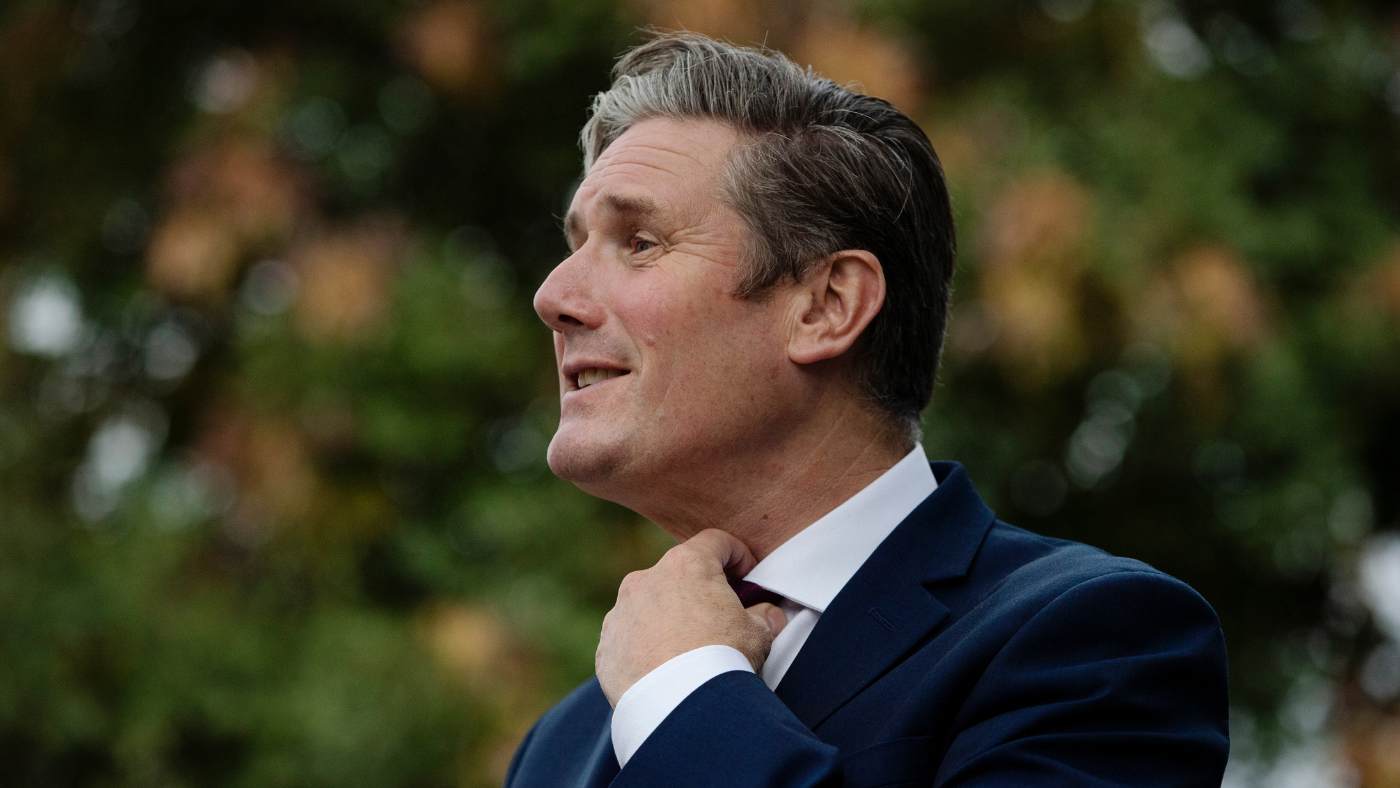Grooming gangs: what did Keir Starmer do as DPP?
Elon Musk has reignited a row over grooming gangs in his latest intervention in British politics

A free daily email with the biggest news stories of the day – and the best features from TheWeek.com
You are now subscribed
Your newsletter sign-up was successful
Elon Musk has reignited the row over grooming gangs, accusing Prime Minister Keir Starmer of being "deeply complicit in the mass rapes in exchange for votes".
In a series of posts on X, Musk said Starmer had failed to deal with the scandal while head of the Crown Prosecution Service (CPS) between 2008 and 2013.
In response, Starmer has accused critics – although without mentioning Musk – of "spreading lies and misinformation", claiming they are "not interested in victims, they're interested in themselves".
The Week
Escape your echo chamber. Get the facts behind the news, plus analysis from multiple perspectives.

Sign up for The Week's Free Newsletters
From our morning news briefing to a weekly Good News Newsletter, get the best of The Week delivered directly to your inbox.
From our morning news briefing to a weekly Good News Newsletter, get the best of The Week delivered directly to your inbox.
What is the grooming gang scandal?
The grooming gang scandal involved high-profile cases of sexual abuse where groups of men, primarily of Pakistani descent, were convicted of exploiting and raping girls as young as 13 in the UK.
The scandal was brought to public attention in 2012 when The Times newspaper investigated Rotherham grooming gangs, which led to a major inquiry.
In 2014, a report by Professor Alexis Jay revealed the extent of sexual exploitation of young girls by grooming gangs in the UK, finding that at least 1,400 children were abused in Rotherham between 1997 and 2013 – a figure the Financial Times said was "conservatively estimated".
Similar crimes were uncovered in Oldham, Oxford, Rochdale and Telford, raising serious concerns over systemic failures to protect victims and prosecute offenders. They spurred a national inquiry into child sexual abuse, again chaired by Jay. It published its final report in October 2022.
A free daily email with the biggest news stories of the day – and the best features from TheWeek.com
What did Keir Starmer do as DPP?
As director of public prosecutions (DPP) between 2008 and 2013, Starmer oversaw the CPS during the scandal's early days.
As a "leftwing lawyer" and "principled opponent of state power", he was not initially "an obvious choice" to lead the CPS, said David Renton, a fellow barrister, in The Guardian in 2020.
Criticism that Starmer bears responsibility for failings in bringing grooming gangs to justice largely stems from a 2009 decision by the CPS not to prosecute suspects in a Rochdale case, citing concerns about the victim's credibility.
Starmer had been in the role for nine months at the time, but "no evidence suggests he was made aware of the details of the case at the time", said the FT.
Nazir Afzal, chief prosecutor for northwest England, reversed that decision in 2011, leading to the conviction of nine men. "The only way we could bring that case was to admit that we had failed these victims when they had first made a complaint in 2008," said Afzal afterwards. He said that Starmer was "100% behind the decision to publicly admit that we had got it wrong in the past".
How many grooming gang cases were prosecuted under Starmer?
Successive inquiries into child sexual abuse in the UK have concluded that police officers, social services and councils consistently failed victims. But contrary to some claims circulating on the internet, "there is no evidence of any organised cover-up", said The Guardian.
No specific data exists for grooming gangs as there is no specific offence – offenders can be prosecuted for causing or facilitating sexual exploitation, or for committing offences such as rape and indecent assault. But there were several significant prosecutions between 2010 and 2014, including 35 during Starmer's tenure as DPP, according to a 2022 report from the Independent Inquiry into Child Sexual Abuse.
What has Starmer said in response to criticism?
The prime minister has "robustly" defended his record as head of the CPS, said the BBC. He said his record included changing guidance on child sexual exploitation in 2013 to "challenge myths and stereotypes" that had stopped victims from being heard, leaving office when the CPS had the highest number of child sex abuse prosecutions on record, reopening cases that had been closed, and bringing the first prosecution of an Asian grooming gang.
What else did Starmer do as DPP?
Starmer's tenure involved other high-profile and controversial cases, including the death of Ian Tomlinson in 2009. The CPS initially declined to prosecute the officer involved, but reversed its decision following an inquest.
Starmer has also previously proudly pointed to his record of prosecuting MPs over the expenses scandal, ordering the courts to stay open 24/7 for emergency sessions after the London riots of 2011, and defending the Human Rights Act against Tory proposals to repeal it. He also launched plans to tackle female genital mutilation, although the first successful prosecution did not come until 2019.
Sorcha Bradley is a writer at The Week and a regular on “The Week Unwrapped” podcast. She worked at The Week magazine for a year and a half before taking up her current role with the digital team, where she mostly covers UK current affairs and politics. Before joining The Week, Sorcha worked at slow-news start-up Tortoise Media. She has also written for Sky News, The Sunday Times, the London Evening Standard and Grazia magazine, among other publications. She has a master’s in newspaper journalism from City, University of London, where she specialised in political journalism.
-
 The Olympic timekeepers keeping the Games on track
The Olympic timekeepers keeping the Games on trackUnder the Radar Swiss watchmaking giant Omega has been at the finish line of every Olympic Games for nearly 100 years
-
 Will increasing tensions with Iran boil over into war?
Will increasing tensions with Iran boil over into war?Today’s Big Question President Donald Trump has recently been threatening the country
-
 Corruption: The spy sheikh and the president
Corruption: The spy sheikh and the presidentFeature Trump is at the center of another scandal
-
 The Mandelson files: Labour Svengali’s parting gift to Starmer
The Mandelson files: Labour Svengali’s parting gift to StarmerThe Explainer Texts and emails about Mandelson’s appointment as US ambassador could fuel biggest political scandal ‘for a generation’
-
 Will Peter Mandelson and Andrew testify to US Congress?
Will Peter Mandelson and Andrew testify to US Congress?Today's Big Question Could political pressure overcome legal obstacles and force either man to give evidence over their relationship with Jeffrey Epstein?
-
 Reforming the House of Lords
Reforming the House of LordsThe Explainer Keir Starmer’s government regards reform of the House of Lords as ‘long overdue and essential’
-
 How long can Keir Starmer last as Labour leader?
How long can Keir Starmer last as Labour leader?Today's Big Question Pathway to a coup ‘still unclear’ even as potential challengers begin manoeuvring into position
-
 What is at stake for Starmer in China?
What is at stake for Starmer in China?Today’s Big Question The British PM will have to ‘play it tough’ to achieve ‘substantive’ outcomes, while China looks to draw Britain away from US influence
-
 DOGE shared Social Security data, DOJ says
DOGE shared Social Security data, DOJ saysSpeed Read The Justice Department issued what it called ‘corrections’ on the matter
-
 Can Starmer continue to walk the Trump tightrope?
Can Starmer continue to walk the Trump tightrope?Today's Big Question PM condemns US tariff threat but is less confrontational than some European allies
-
 ‘The security implications are harder still to dismiss’
‘The security implications are harder still to dismiss’Instant Opinion Opinion, comment and editorials of the day